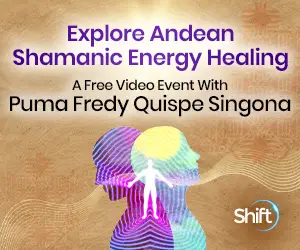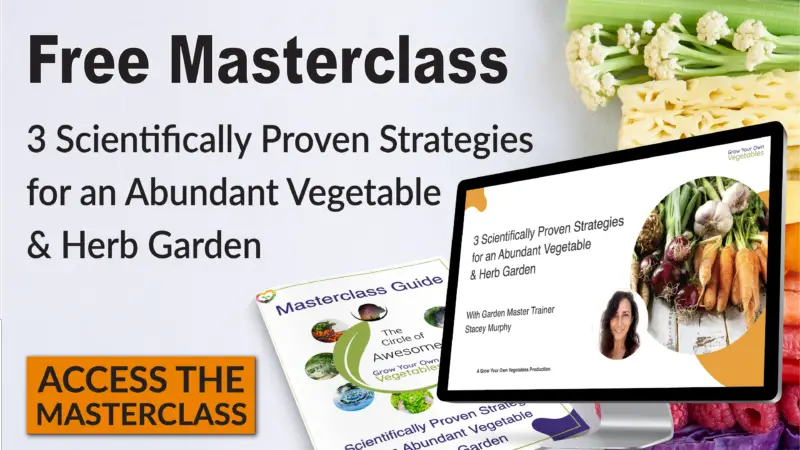By Deane Alban
Contributing writer for Wake Up World
We intuitively know what scientists are now proving – that music helps you remember, get smarter, and live longer.
Let’s take a look at how music helps us remember, how music is being used to rehabilitate the brain, and how it can lead to a longer, happier life. Plus, we’ve got two fun videos that will have you dancing in the aisles!
Music is in Our Genes
All cultures have music. The oldest known musical instrument is a 40,000 year old flute carved from a bone.
Music has been universally used to help people remember language and stories significant to that culture. A remnant of that is teaching our children nursery rhymes.
It appears we are genetically programmed to respond to music. Babies in the womb react differently to music they like and don’t like.
Young brains that are exposed to music build more neural pathways, possibly leading to higher intelligence. One popular study found listening to Mozart led to higher scores on intelligence tests.
Findings like this led to a theory called the “Mozart effect”. Playing Mozart to babies before and after birth was believed to make them smarter. While this concept has fallen out of favor with the scientific community, many people are still convinced of its worth.
How Music Effects the Brain
Listening to music is complicated. It’s said to be one of the few activities that requires using both sides of the brain simultaneously.
The creative right side of the brain resonates with the melody, harmony, and pitch, while the left side analyzes changes in frequency, rhythm, and intensity.
We play music and then the music plays us, bringing our emotions to the surface.
Listening to music can lead to improved focus, memory and attention, language skills, and physical coordination.
Playing music is even better for mental development than passively listening to music. Kids who join a band or learn to play an instrument develop better memories than kids with no musical training.
Listening to music while studying improves memory recall in all age groups. Instrumental music works best because the words in songs can compete with information you’re trying to remember.
Albert Einstein attributed his great intelligence to playing the violin and would turn to music when he needed help solving a problem.
Music as Brain Therapy
There is an entire field of music therapy. Stroke victims who listen to music have faster recoveries and improved verbal memory and attention spans compared to those not exposed to regular music. Songs can help create new speech pathways in the brain that circumvent damaged regions.
After Congresswoman Gabby Giffords was shot in the head, she had to relearn how to talk. Music therapy played an important part in this. By layering words on top of melody and rhythm, she trained her brain to use new neural pathways to regain her speech.
Giving seniors with Alzheimer’s or dementia an iPod can greatly improve their lives. Music helps to fill their days, brings many of them out of their shells, and rekindles memories. As one patient revealed in the documentary about music and Alzheimer’s, Alive Inside, “music surrounds me with a band of love, of dreams”.
Dancing is associated with a significant reduction in the risk of dementia. It’s not sure whether it’s the physical exercise, the mental challenge of learning new moves, or the social aspect that helps, but it could be a synergistic effect of all three.
When Music Works Too Well
Have you ever had an earworm? This is a term used to describe that song, riff, or jingle that you remember too well and can’t get out of your head.
Seriously – I’m not making this up! WebMD.com has a list of “worst earworm songs”. Chili’s Restaurants “baby back rib” jingle is at the top of the list. I can see that.
This list is a few years old now. I’m pretty sure a few Lady Gaga songs would be on that list now. Here’s why. First, look at these words from the chorus of her big hit “Bad Romance”: Rah, rah, ah, ah, ah, roma, roma, ma, Gaga, ooh, la la.
This is a chant, pure and simple, with an incessant beat, and a subliminal message – (lady) Gaga is “ooh, la la”? All this assures this song will stick in your brain.
What’s your worst earworm? I’m going to tell you something I’ve never told anyone – “Shake It Up” by the Cars is a worm that has been stuck in my ears since 1981! Fortunately, I can usually make it stop by thinking of another song. Otherwise I probably would have stuck a few forks in my ears by now.
Music and Longevity
Can music make you live longer? It seems very likely that it can.
Orchestra conductors are known to be a particularly long-lived group. There are many theories as to why they have such long lives and often can work well past normal retirement age. All that upper body movement is a good cardiovascular workout. This could help to lower blood pressure and pump more blood to their brains and keep their hearts strong.
But the same could be said for boxers and trash collectors, but I don’t think they’re particularly long-lived.
The big difference is that conductors do what they love and spend much of their time surrounded by a wall of beautiful, complex sound. This can lead to new neural connections and greater intelligence. Live classical music can create a brain wave state similar to meditation. Music lovers sometimes fall asleep at concerts because they are deeply relaxed, not because they are bored!
Here are some anecdotal examples of how a life of music can extend your life. Hard to believe, but true:
After decades of smoking, drinking, drugging, and rock’n’rolling, Keith Richards and Mick Jagger are alive, performing, and still remember the words to their songs. It must be the music. Seriously. With this kind of hard living, these guys really should be dead.
The world’s oldest chorus girl is 85 year young Dorothy Dale Kloss. She and the rest of the Palm Springs Follies cast sing and dance (at the same time!), putting on 10 shows per week. If you ever have the chance, you simply must see this show. All the performers are 60 and older. It is one of the most inspiring and fun evenings you’ll ever have. Until you can catch the show, enjoy watching this short video spotlighting this season’s show.
A group of regular New England senior citizens get together to belt out rock songs. There is nothing they won’t tackle. Watching them perform instills completely new meaning into songs like Golden Years (David Bowie), Stayin’ Alive (Bee Gees), and Road to Nowhere (Talking Heads).
You can watch them rehearse and perform in the award-winning documentary Young@Heart. I can’t recommend this video enough. You can rent it from Netflix or buy it on Amazon. I enjoyed it so much, I watched it twice back-to-back! Enjoy this trailer, then watch the movie.
The World of Music for Free
Having an extensive music collection used to cost a small fortune. Most of us have gone through several collections. I’ve collected and replaced records, 8 tracks, cassettes, CDs, and now am settling into digital music. Two ways I access digital music for free is with Spotify and Pandora.
Pandora lets you create your own radio stations. You create a channel by adding seed songs or artists, then, using a complex musical algorithm, Pandora plays other songs it thinks you will like. You get to give a thumbs up or down to any song to help refine your personalized station. You can also listen to Pandora’s preset stations by genre. I like Pandora because you’ll always hear new music that you like and it displays lyrics of the songs. I listen on my PC and on my TV.
Spotify lets you choose from its library of millions of tracks to create your own playlists that you can access on your computer, home audio system, or mobile phone. All you need is a Facebook account to get started. I like Spotify because I can create playlists of exactly the songs I want to hear.
We can’t all be 85 year old showgirls like Dorothy Dale Kloss, but you can belt out a few tunes while driving or in the shower or break out into an occasional dance around the house. You can even sign up for those guitar or tango lessons you’ve always wanted to take.
Article Sources:
- Alive Inside Documentary Project at MusicandMemory.org
- Flute’s Revised Age Dates the Sound of Music Earlier at NYTimes.com
- Songs Stick in Everyone’s Head at WebMD.com
Recommended articles by Deane Alban:
- Change Your Thoughts, Change Your Brain
- Experience the Brain Benefits of Do-It-Yourself Biofeedback
- Five Common Food Additives That Can Damage Your Brain
- Can’t Get the Hang of Meditation? Try This Instead
- Exposed: Why Cholesterol Doesn’t Cause Heart Disease
- Stress, Telomeres, and the Secret to Prevent Aging
- 20 Common Medications That Can Cause Memory Loss
- 5 Common Food Additives That Are Toxic to Your Brain
- The ABCs of Vitamins for Memory and Brain Health
Deane Alban holds a bachelor’s degree in biology and has taught and written on a wide variety of natural health topics for over 20 years. Her current focus is helping people overcome brain fog, “senior moments”, and other signs of mental decline now, and preventing Alzheimer’s and dementia in the future.
The human brain is designed to last a lifetime, but modern life takes a greater toll on the brain than most people realize. Deane teaches the best ways to keep your brain healthy and stay mentally sharp for life at her website BeBrainFit.com.
Unlock the secrets to year-round garden abundance with our transformative online masterclass. Whether you’re in an urban apartment or a rural homestead, you can cultivate a thriving garden oasis by embracing innovative strategies that defy traditional growing limitations. This free masterclass will empower you with the knowledge to revolutionize your gardening approach and create a sustainable, connected lifestyle. Join us and become part of a community dedicated to holistic living through the power of home gardening.
In this free online masterclass, you’ll discover:
- How to develop lasting gardening habits
- Why plant “failures” are actually successes
- The surprising simplicity of plant care
- How to break free from the myth of growing seasons
- A proven system for continuous garden improvement
Don’t miss this opportunity to transform your living space into a haven of growth and vitality. Your future self will thank you for embracing this journey. Secure your free spot today and start cultivating a greener, healthier world, one garden at a time.
If you’ve found value in our articles, we invite you to support the release of our brand-new book, “Gratitude Practices for Kids: A Practical Guide for Adults to Instill a Spirit of Appreciation and Positivity in the Next Generation.“
“Gratitude Practices for Kids” brings together over 25 innovative and accessible practices designed to enhance gratitude in everyday life. This comprehensive guide is backed by 17 scientific studies, ensuring each concept is grounded in research, underscoring our commitment to nurturing growth, emotional intelligence, and positive interactions between adults and children.
We encourage you to opt for the paperback version to celebrate this new release. Dive into its fresh pages away from digital distractions, allowing you to immerse yourself in the transformative practices it offers.
Over recent years, Wake Up World has faced significant online censorship, which has impacted our financial ability to operate. Moving into book publishing represents a strategic step to secure the ongoing funds needed to continue our mission. By purchasing Gratitude for Kids, you help us keep our content free and accessible to everyone, avoiding needing a paywall. With over 8,500 articles published in the last 13 years, we remain dedicated to keeping our valuable content open to all.











